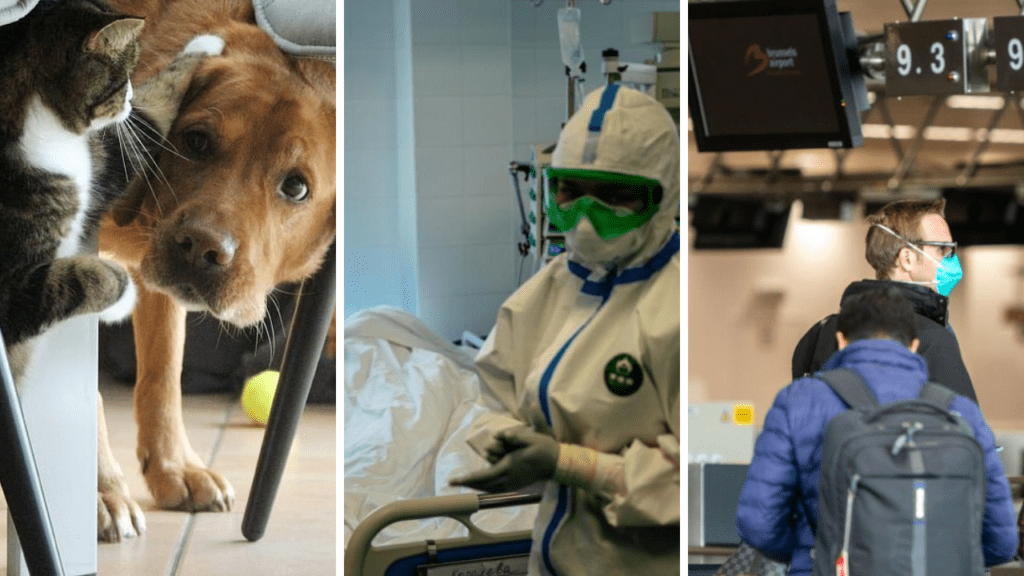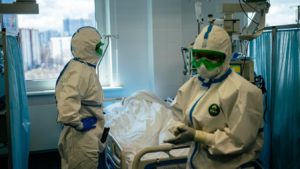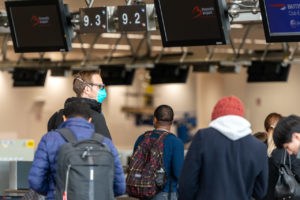Another day, another roundup of news. The sun is shining, the country is quiet - though not as quiet as it was - and it seems like Belgium is poised for... something.
So what's the latest news? We delve into the death toll heard around the world, explain Belgium's call for Corona detectives, and Belgium's latest figures.
With so much information, and so little time to catch up before it potentially changes again, here are some of the top stories from around the country to get you up to speed.
Belgium in Brief is a free daily roundup of the top stories to get you through your lunch break conversations. To receive it straight to your inbox every day, sign up below:
1. Coronavirus: 170 new deaths, 172 hospital admissions
973 new people have tested positive for the new coronavirus (Covid-19) in Belgium, confirmed the Federal Public Health Service during a press conference on Tuesday.
This brings the total number of cases in Belgium, since the beginning of the pandemic, to 40,956. The total reflects all people in Belgium who have been infected, and includes confirmed active cases as well as patients who have since recovered, or died from the consequences of the virus.
389 of the newly-infected people live in Flanders, 511 live in Wallonia, and 60 live in Brussels. The FPS does not yet have further information on the place of residence of 13 other people. Read more.
2. Why does Belgium have so many Coronavirus deaths?
Belgium, with roughly 11.5 million inhabitants, has recorded the most deaths as a consequence of the coronavirus per capita, but how did that happen, and can all figures be compared to other countries?
On Monday, the total number of deaths in Belgium since the beginning of the pandemic reached 5,828, of which 47% occurred in the hospitals. 52% of the deaths occurred in the residential care centres, of which only 4% are confirmed cases, according to official figures. The other 96% of cases in the care centres are suspected, based on symptoms.
Unlike many other countries, Belgium also counts suspected coronavirus deaths that occur outside of the hospitals. Even though Belgian virologist Marc Van Ranst called this “dumb” in the past, and several politicians are concerned for the country’s good reputation, the National Research and Public Health Institute Sciensano stands by this system. Read more.
3. Counting care centre deaths is not the smartest strategy, says Marc Van Ranst
Belgium’s high death count, which includes almost all people who die in a residential care centre, is not the smartest way of counting when profiling the country internationally, according to Belgian virologist Marc Van Ranst.
“We count just about everyone who dies in our residential care centres, and other countries don’t,” Van Ranst said on Monday in an interview with Flemish television programme Gert Late Night.
“If you count everyone who dies in one of our 1,500 care centres, it is as if no one ever dies from something else anymore,” Van Ranst said. “Then, you get crazy numbers,” he added. Read more.
4. Belgium seeks ‘corona detectives’ to ready lockdown rollback
Belgium will hire 2,000 investigators to identify people at risk of getting the coronavirus in an effort to keep it from spreading further as the government set eyes on lifting the lockdown measures.
The so-called “corona detectives” will work to trace the people who have been in contact with confirmed or suspected patients. The people identified by the contact tracers will be tested for the virus and those who test positive will be quarantined for two weeks.
The team of contact tracers will be split up between the regions, with 200 set to be put to work on Brussels, 600 in Wallonia and 1,200 in Flanders. Read more.
5. Supermarkets more expensive since mid-March
About 3,300 products in supermarkets in Belgium have become more expensive since the federal government banned discounts to prevent panic-buying mid-March.
Of those products, about 1,500 products have even become over 10% more expensive, a study by data company Daltix and commissioned by Het Laatste Nieuws shows. On average, supermarket prices have risen by 2.6%.
At the end of March, the restrictions on promotions were relaxed again, but the study shows that prices are still higher than they were before the ban. Read more.
6. Still no evidence your pet can infect you with Coronavirus
There is still no evidence that the few pets who were infected with the coronavirus can infect humans, despite new studies, said French health agency Anses.
Since the appearance of the coronavirus, a few cases of pets testing positive for the virus have turned up, including two dogs and a cat in Hong Kong, and a cat in Belgium, which raised some concerns about whether or not animals could infect humans. Read more.
7. Single parents granted extra parental leave due to lockdown
Single parents will be able to take additional days of parental leave to care for children under the age of 12 during the coronavirus lockdown.
The so-called “corona leave” would not knock off days from the number of parental leave days that are already granted to working parents in an employment contract.
The leave would be partial, as it would allow working parents to cut back their work hours to three-quarters or half-time of their regular work. Read more.
Jules Johnston
The Brussels Times



